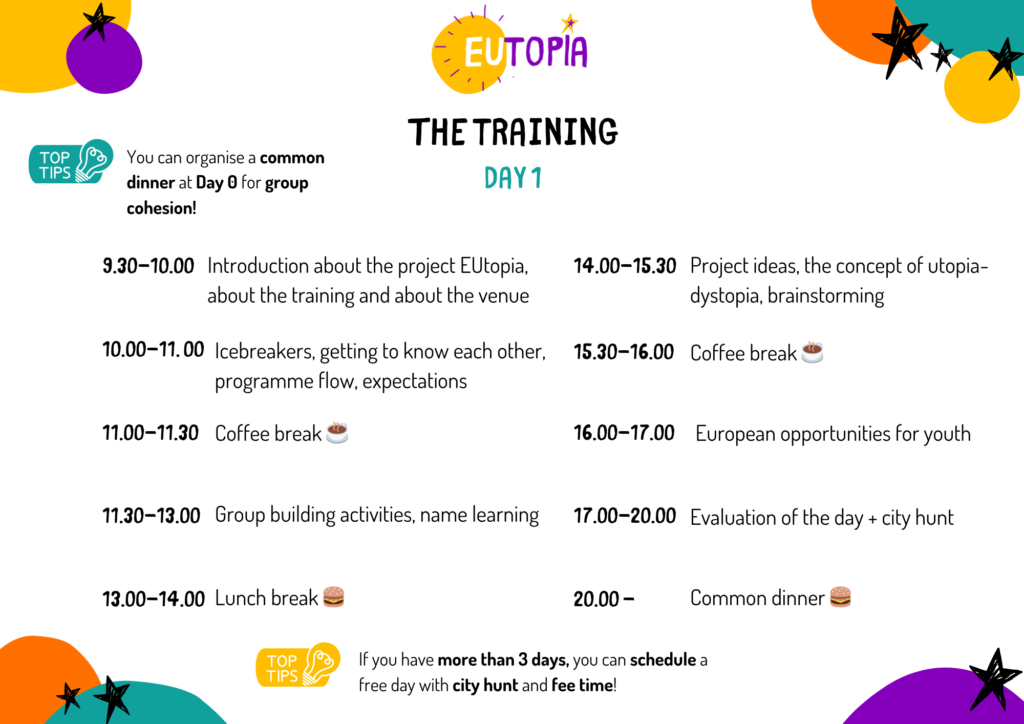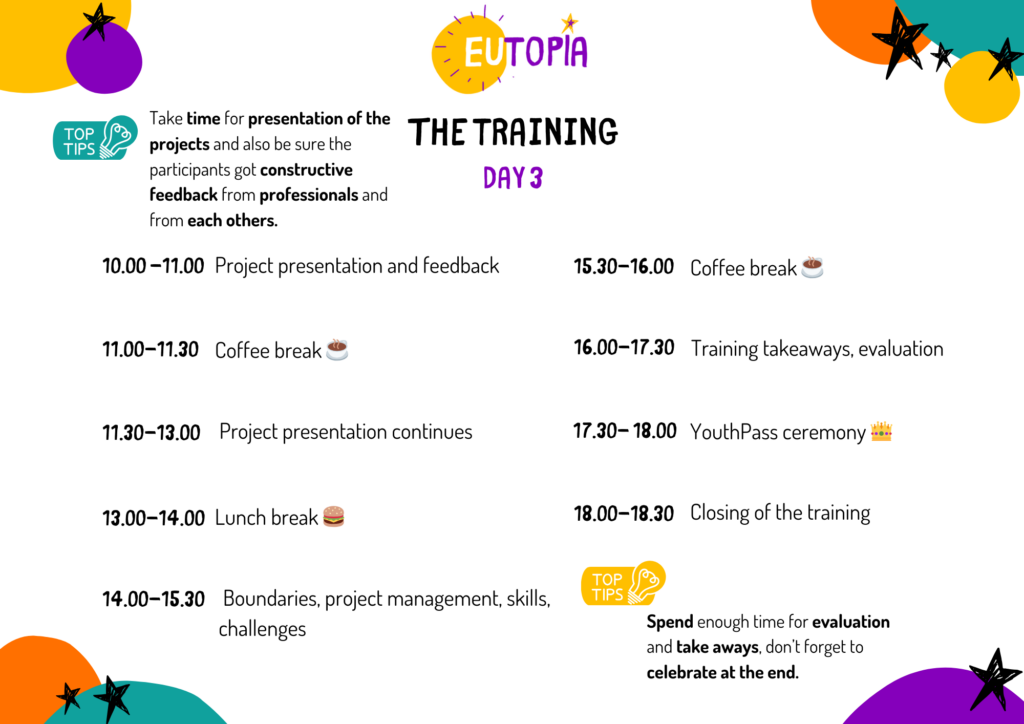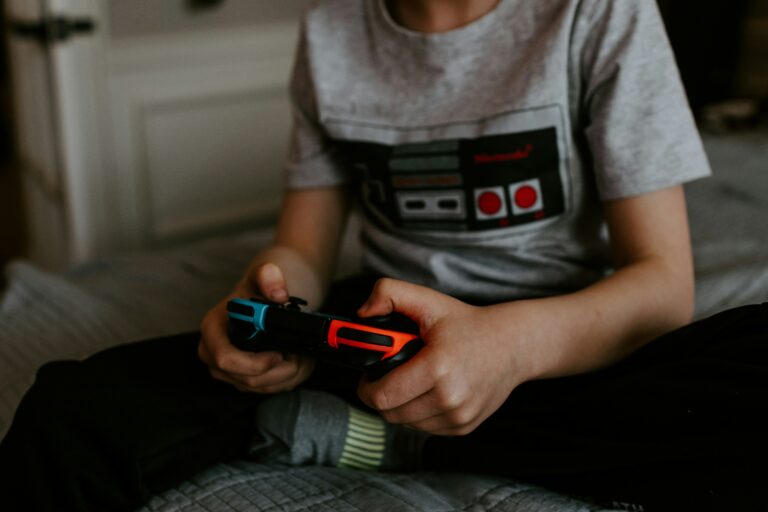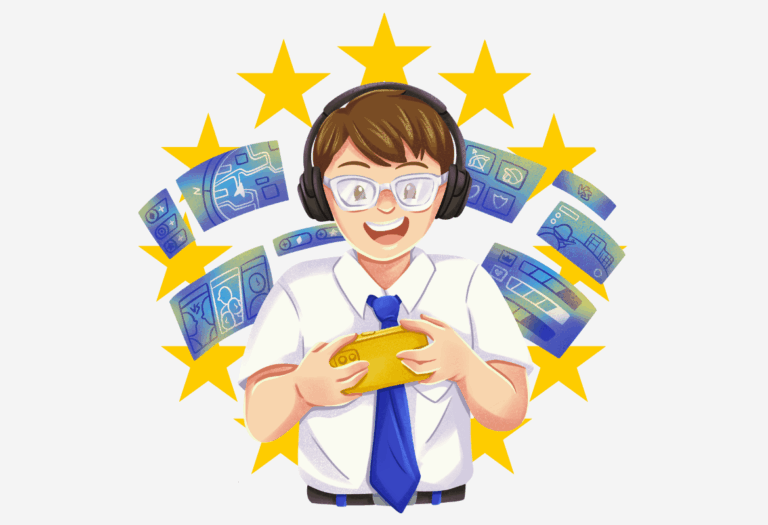EUtopia, an Erasmus+ initiative, inspires young people to become active participants in democratic life. By engaging with Europe’s social, cultural, and historical heritage, the project equips youth (ages 16-25) and youth workers with hands-on tools to bring community-focused ideas to life and address social issues.
Why explore Utopias and Dystopias?
Using utopian and dystopian themes provides a unique framework for discussing active citizenship and participation. These themes help young people envision both the potential and challenges of governance, fostering critical thinking about their social responsibilities and the impact they can have on society.
Through EUtopia, youth are supported in their growth with resources available on the project website. These include comprehensive guides, structured action plans, and engaging activities that equip young leaders with essential skills in leadership and project management, empowering them to turn their ideas into action.
This guide builds on the agenda from an international training held in spring 2024, where 20 young participants (ages 18-25) from partner countries gained practical experience in using these tools effectively.
Day 1: Foundations of participation
The first day laid the groundwork with discussions on utopian and dystopian societies, team-building games, and introductions to European opportunities like youth exchanges, the European Solidarity Corps, and DiscoverEU. Participants also shared project ideas they had prepared, essential for engaging in the training.

Top Tips for Day 1
- Use gamified activities from the Collection: Engage youth with specific gamified activities from the curated set of 25 ready-to-use activities that simplify implementation and bring energy to the sessions.
- Customise to fit the audience: Adjust the activities to suit each group’s needs. The Implementation Guide offers additional support for tailoring these activities effectively.
Day 2: Project design through play
On Day 2, the focus shifted to project design using interactive, game-based activities to explore the project cycle and set SMART goals, moving seamlessly into concrete project planning.

Top Tips for Day 2
- Apply gamification in planning: Use the Action Plan and Template, with built-in gamified elements, to make the project planning process engaging and accessible, turning ideas into tangible steps.
- Incorporate game-based reflection in evaluation: Reflecting on experiences is essential. The Evaluation Plan offers engaging ways to review projects, allowing young people to gain insights, learn from challenges, and prepare for future endeavours.
Day 3: Project presentations and feedback
The final day focused on project presentations, where participants received feedback to strengthen their plans for implementation.

Top Tips for Day 3
- Introduce a mentorship game: Consider offering a “mentorship game” where participants earn feedback points or mentorship tokens to track their progress, keeping them motivated as they implement their projects.
- Discover inspiring project ideas with gamified scenarios: For ideas that encourage active youth participation, explore the Map of Inspirations or Workshop Scenarios for innovative, gamified approaches.
EUtopia goes beyond being a project—it’s a movement to empower the next generation of active citizens. Visit the website for access to tools, resources, and practical guides to support young people in shaping a brighter future.
Join in making positive change happen!



